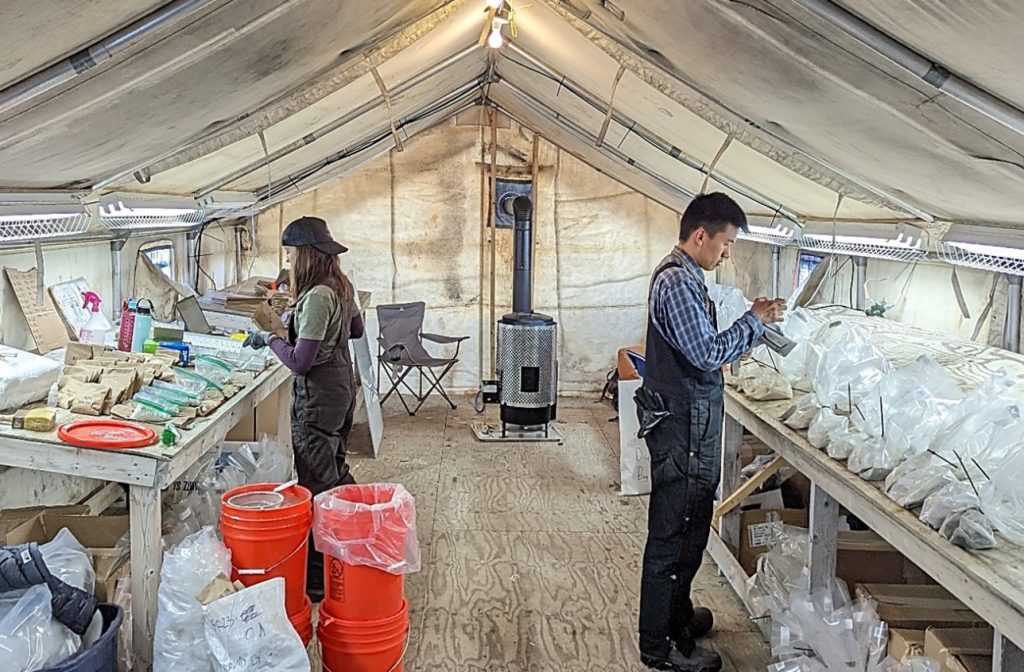Aston Bay up 29% on Nunavut copper discovery

Aston Bay Holdings Ltd. (BAY-TSXV) shares rallied in were active trading Friday, after company announced what it described as a “major copper discovery’’ at the Storm project in Nunavut.
The announcement comes over two years after private Australian company American West Metals Ltd. gained an option from Aston Bay to earn an 80% interest in the project by spending $10 million on exploration over a period of up to nine years, including $2 million over the first two field seasons.
Aston Bay shares jumped on the news, rising 29.4% or $0.025 to 11 cents on volume of 2.57 million, making Aston Bay the volume leader on the TSX Venture Exchange in early trading Friday. The shares are currently trading in a 52-week range of 10.5 cents and $0.015.
In a press release, Aston Bay is reporting significant copper sulfide mineralization intercepts from the initial two diamond drill holes testing a blind gravity target at the Storm project on Somerset Island. The two holes are located 680 metres apart. It said the program, still underway, is being conducted by American West Metals, the project operator.
Drill hole ST23-01 returned a total of 45.4 metres of visual sulfides, consisting of 30.5 metres of breccia-style visual copper sulfide (dominantly chalcocite) within three zones associated with the shallow copper mineralization of the 4100 Zone between 45 metres and 86 metres downhole, and deeper in the same hole.
The same drill hole returned 15 metres of visual breccia and vein-style copper sulfide (dominantly chalcopyrite) between 332 metres and 347 downhole – the first discovery intersection.
Drill hole ST23002 has intersected a second and more impressive discovery zone, the company said. It featured 37 metres of visual breccia-style copper sulfide (dominantly chalcocite with minor native copper) between 333 metres and 370 metres downhole.
The discovery holes show similarities to many of the world’s major sediment-hosted copper systems, including the deposits of the Kalahari Copper Belt and Central African Copper Belt, the company said.
“Discovery of sedimentary hosted copper has been the true goal of all explorers at Storm, including Aston Bay,’’ said Aston Bay CEO Thomas Ullrich. “I’m delighted to report that, finally, the quest has succeeded, and we have definitive proof of a new sediment hosted copper system.’’
“Our geological model has predicted the presence of chalcocite in permeable sedimentary horizons, hidden in the subsurface – this discovery proves it. Not only have we hit a significant mineralized interval, but presence of chalcocite in the largest hole provides a vector to more copper-rich mineralization within this very large gravity anomaly.’’
In a previous interview in 2019, Ullrich said he was excited by the amount of copper found on surface at Storm as well as by results of drilling in four zones of copper mineralization. That includes 110 metres grading 2.45% copper from surface at the 2750N Zone.
“You don’t come across these sorts of things very often in a career,” he said.
